Understanding Cat Survival Without Food
“Food is not just vital for nourishment; it is also a source of comfort and vitality.”
– Jackson Galaxy
Welcome to my blog post on understanding cat survival without food. As a cat owner, it is important to be aware of how long cats can go without food and the potential consequences of depriving them of nutrition. In this article, I will explore the topic of cat starvation, the dangers of food deprivation, and the importance of timely nutrition for our feline friends. So, let’s dive in and uncover the facts about cat survival without food.
Key Takeaways:
- Cats can survive without food for up to two weeks, but it is not recommended to let them go without eating for this long.
- Depriving cats of food can lead to malnourishment and weakness after 24 hours.
- Prolonged food deprivation can result in organ damage and even liver failure.
- Providing cats with timely nutrition is crucial for their overall health and well-being.
- If a cat is not eating, it is important to consult with a veterinarian to determine the underlying cause and establish a treatment plan.
How Long Can Cats Go Without Water?
Cats can survive without water for 2 to 3 days, but after 24 hours without water, they can become dehydrated. Dehydration puts stress on their organs and can lead to complications such as organ failure. It is important for cats to have access to fresh water every day. Cats can also obtain a significant amount of their water intake from wet food.
Image illustrating the importance of cats having access to fresh water.
The survival time without water can vary depending on the cat’s environment, with cats in hotter climates becoming dehydrated more quickly. Providing clean and accessible water sources is crucial for maintaining feline hydration. It is recommended to regularly check and refill your cat’s water bowl to ensure they have an adequate supply.
The Role of Wet Food
“Wet food can provide cats with a significant portion of their daily water intake.”
Wet food contains a higher moisture content compared to dry kibble. This increased moisture can help supplement a cat’s water intake. By offering both wet food and fresh water, you can ensure your cat receives proper hydration.
Signs of Dehydration in Cats
- Lethargy or reduced energy levels
- Dry gums and sunken eyes
- Loss of appetite
- Reduced or absent urination
- Elevated heart rate
Monitoring your cat’s water intake and being observant of these signs can help you identify dehydration early and seek appropriate veterinary care.
| Normal Hydration Level | Mild Dehydration | Moderate Dehydration | Severe Dehydration |
|---|---|---|---|
| Moist gums and pink tongue | Sticky gums and slightly dry tongue | Dry and pale gums, slightly tacky tongue | Extremely dry gums, sunken eyes, and dry tongue |
| Normal skin elasticity | Slightly reduced skin elasticity | Poor skin elasticity | Significantly reduced skin elasticity |
| Normal urine output | Reduced urine output | Minimal to no urine output | No urine output |
Table: Signs of dehydration in cats at different levels of severity
If you suspect that your cat is dehydrated, it is essential to contact your veterinarian for a proper evaluation and treatment plan. Prompt intervention can help prevent further complications and ensure your cat’s well-being.
How Long Can Kittens Go Without Food?
When it comes to kittens, their nutritional needs are especially important during their early development. Very young kittens, particularly those reliant on their mothers for sustenance, cannot go more than a few hours without feeding. Their tiny bodies require frequent nourishment to support their rapid growth.
As kittens grow older and become more independent, they may be able to sustain themselves without food for a couple of days. However, prolonged periods without eating can quickly lead to malnutrition and weakness. After just 24 hours without food, kittens may experience negative effects on their overall health and well-being.
Lack of nutrition can have detrimental consequences on their developing bodies, as they require a balanced diet for proper growth and optimal development. Malnutrition in kittens can lead to stunted growth, compromised immune systems, and delayed cognitive development.
Therefore, if you notice that a kitten is not eating, it is crucial to seek guidance from a veterinarian as soon as possible. A professional can assess the situation and provide appropriate advice and solutions to address the kitten’s nutritional needs.
Ensuring a proper feeding schedule for kittens can help prevent malnutrition and promote their overall health. It is recommended to consult with a veterinarian to establish a feeding routine that aligns with the kitten’s age, size, and specific dietary requirements.
Suggested Feeding Schedule for Kittens:
| Age | Number of Daily Meals | Feeding Guidelines |
|---|---|---|
| 0-3 weeks | Every 2-3 hours | Bottle feeding or nursing from their mother |
| 3-4 weeks | About 4-5 meals | Introduction to solid foods (high-quality wet kitten food mixed with formula) |
| 4-6 weeks | About 4 meals | Gradual transition to solid food (moistened kibble or wet kitten food) |
| 6-8 weeks | About 3 meals | Continued transition to solid food (dry or wet kitten food) |
| 8 weeks and older | About 2-3 meals | Regular feeding of high-quality dry or wet kitten food |
Remember, proper nutrition is vital for kittens’ growth and development. Providing them with a balanced diet and adhering to a suitable feeding schedule can help prevent malnutrition and ensure their overall well-being.
Reasons for Cats Not Eating
Cats may stop eating for various reasons. Loss of appetite in cats, known as anorexia, can be concerning and may indicate underlying medical issues or other factors that affect their food intake. If your cat has not been eating or shows a decreased interest in food, it is essential to understand the possible reasons and seek veterinary advice to address the issue promptly.
Dental/Tooth Pain or Infections
Cats with dental or tooth pain or infections may experience discomfort while eating, leading to a loss of appetite. Dental issues can range from tooth decay and gum disease to broken teeth or abscesses. These conditions can significantly impact a cat’s ability to chew and swallow food, causing them to avoid eating.
Gastrointestinal Issues
Cats can develop gastrointestinal problems such as gastritis, inflammatory bowel disease (IBD), or gastroenteritis, which can cause nausea, stomach pain, and digestive disturbances. These conditions can lead to a decreased appetite and reluctance to eat.
Kidney Disease
Kidney disease, particularly chronic kidney disease (CKD), is a prevalent condition in older cats. Cats with kidney disease may experience a reduced appetite as a result of the disease’s impact on their metabolism and overall well-being.
Pancreatitis
Pancreatitis is an inflammation of the pancreas that can affect cats. This condition can cause pain, nausea, and a decreased appetite. Cats with pancreatitis may avoid eating or show disinterest in food.
Digestive Obstruction
Digestive obstructions, such as foreign bodies or hairballs, can prevent the normal flow of food through a cat’s digestive system. This obstruction can cause discomfort and may lead to a reduced appetite or refusal to eat.
Recent Vaccination or Medication
Some cats may experience side effects from vaccinations or medications that can temporarily affect their appetite. Anorexia can be a possible reaction to certain injections or drugs, especially in the first few days after administration.
Anxiety or Stress
Cats are sensitive creatures, and changes in their environment or routine can cause anxiety or stress. Stressors such as moving to a new home, the introduction of a new pet, or loud noises can lead to a loss of appetite.
New Food
Introducing a new type or brand of food can sometimes put a cat off from eating. Cats can be particular about their tastes and preferences, so they may refuse to eat if they dislike the new food’s smell, texture, or flavor.
Metabolism Slowing Down in Older Cats
As cats age, their metabolism slows down, and they may require fewer calories to maintain their weight. This decreased metabolic rate can lead to a decreased appetite in older cats.
Being Full from Finding Food Outside
Cats are natural hunters, and if they have found a food source outside, they may be less interested in their regular meals. If a cat is regularly consuming food elsewhere, it can contribute to a loss of appetite for their usual meals.
It is important to note that this list is not exhaustive, and there can be other reasons why a cat may stop eating. If your cat has not eaten for more than 24 hours or shows any concerning signs, it is crucial to consult with a veterinarian to determine the underlying cause and appropriate treatment.
| Reasons for Cats Not Eating | Signs and Symptoms |
|---|---|
| Dental/Tooth Pain or Infections | Difficulty chewing or swallowing, drooling, bad breath |
| Gastrointestinal Issues | Vomiting, diarrhea, stomach pain |
| Kidney Disease | Increased thirst, increased urination, weight loss |
| Pancreatitis | Abdominal pain, vomiting, diarrhea, lethargy |
| Digestive Obstruction | Loss of appetite, vomiting, constipation |
| Recent Vaccination or Medication | Lethargy, fever, swelling at the injection site |
| Anxiety or Stress | Behavioral changes, hiding, excessive grooming |
| New Food | Turning away from food, sniffing food without eating |
| Metabolism Slowing Down in Older Cats | Weight loss, decreased activity level |
| Being Full from Finding Food Outside | Reduced interest in regular meals, weight maintenance |
How Long Can Cats Go Without Eating?
It is a common concern among cat owners to wonder how long cats can go without eating. While cats are known for their ability to survive in challenging conditions, continuous deprivation of food can have severe consequences for their health and well-being.
After 24 hours without food, cats may start to experience indicators of malnourishment and general malaise. Their bodies rely on regular nutrition to function optimally, and inadequate food intake can lead to weakness and lethargy.
Continuous starvation can be especially dangerous for cats, potentially causing organ damage and shutdown. Cats are obligate carnivores, and their bodies require essential nutrients that can only be obtained through a balanced diet. Depriving them of food for extended periods can result in a range of health issues.
The Consequences of Not Eating in Cats
The consequences of cat starvation or food deprivation can be significant and potentially life-threatening. The lack of essential nutrients can lead to weakened immune systems, impaired organ function, and even organ failure.
Cats who go without food for extended periods are at higher risk of developing hepatic lipidosis, a severe liver condition. This condition occurs when the body starts breaking down fat stores in the liver, leading to an excessive accumulation of fat. Hepatic lipidosis can be fatal if not addressed promptly.
Furthermore, malnutrition resulting from cat food deprivation can affect the cat’s overall well-being, leading to poor coat condition, muscle wastage, and a compromised ability to fight off infections.
Addressing Cat Lack of Eating
If your cat has not eaten for a day or more, it is important to take action and seek veterinary care. A veterinarian can help determine the underlying cause of your cat’s appetite loss and develop an appropriate treatment plan.
There are several possible reasons why a cat may stop eating, ranging from underlying medical conditions to stress or anxiety. It is crucial to identify and address the root cause to ensure your cat’s health and well-being.
During the examination, the veterinarian may perform diagnostic tests, such as blood work or imaging, to rule out any underlying medical issues. They may also recommend changes to your cat’s diet, prescribe medications, or provide other forms of supportive care to encourage eating.
Consulting a Veterinarian
When your cat’s appetite decreases or they refuse to eat, consulting a veterinarian is essential. Professional guidance is crucial to assess your cat’s overall health and address any potential underlying conditions contributing to their lack of eating.
Your veterinarian will work with you to develop a treatment plan tailored to your cat’s specific needs. They may recommend changes in diet, medication, or additional supportive care measures to ensure your cat’s nutritional needs are met.
How to Get Your Cat to Eat
If your cat is not eating, there are several strategies you can try to entice them to eat. Cats can be finicky eaters, so it’s important to find what works best for them. Here are some tips to help encourage your cat’s appetite:
1. Offer a variety of food options: Cats can have specific preferences when it comes to food. Try offering them different options like boiled chicken, white rice with yogurt, or meat-flavored baby food. This variety may help stimulate their appetite and make mealtime more appealing.
2. Warm up their food: Heating up your cat’s food can release aromas that may make it more enticing. Warm the food slightly to enhance the smell and temperature, but remember to test it to ensure it’s not too hot for your cat.
3. Create a quiet eating area: Cats can be sensitive to their surroundings. Make sure your cat has a quiet and peaceful location to eat where they feel comfortable and safe. This can help reduce distractions and make mealtime more enjoyable for them.
4. Keep your cat hydrated: Adequate hydration is essential for a healthy appetite. If your cat is not drinking enough water, try adding a small amount of low-sodium chicken broth or tuna juice to their water bowl. The added flavor can entice them to drink more and help prevent dehydration.
5. Consult with a veterinarian: If your cat is consistently refusing to eat or you notice any other concerning symptoms, it’s crucial to seek guidance from a veterinarian. They can assess your cat’s overall health, identify any underlying medical conditions, and provide appropriate advice and treatment.
Remember, every cat is unique, and what works for one may not work for another. Be patient and persistent in finding a solution that encourages your cat to eat. By addressing their food preferences and optimizing their eating environment, you can help support their appetite and overall well-being.
The Importance of Timely Nutrition for Cats
Providing cats with timely nutrition is essential for their overall health and well-being. A cat’s diet plays a crucial role in their growth, development, and immune system function. It impacts their energy levels, coat quality, and even their lifespan. Therefore, ensuring that cats receive proper nutrition is of utmost importance.
When cats do not receive sufficient food, it can lead to malnourishment and weakness. They may lack essential nutrients that support their bodily functions, which can result in organ damage and other health complications. A balanced diet tailored to a cat’s specific nutritional needs is vital for their overall health and vitality.
One key aspect of providing timely nutrition is establishing a regular feeding schedule. Cats thrive on routine, and having set meal times helps them maintain their appetite and digestion. It is recommended to divide their daily food intake into several small meals rather than free-feeding throughout the day. This approach mimics their natural hunting instincts and ensures they receive a balanced diet in appropriate portions.
Another essential component of timely nutrition is selecting the right food for cats. Cats are obligate carnivores, which means they have specific dietary requirements that can only be fulfilled by consuming animal protein. High-quality commercial cat foods are formulated to meet these needs, providing a balance of protein, carbohydrates, fats, vitamins, and minerals. It is crucial to choose cat food that is appropriate for their life stage (kitten, adult, or senior) and take into account any specific dietary needs or preferences, such as special diets for cats with allergies or medical conditions.
To emphasize the importance of proper nutrition for cats, it’s necessary to highlight some key benefits:
- Healthy growth and development: Timely nutrition supports the growth and development of kittens, ensuring they reach their full potential and maintain optimal health throughout their lives.
- Strong immune system: A balanced diet rich in essential nutrients helps strengthen a cat’s immune system, reducing the risk of infections and diseases.
- Healthy weight management: Timely feeding and providing proper nutrition help maintain a healthy weight in cats, preventing obesity and related health issues.
- Improved digestion: Consistent feeding schedules and appropriate food choices contribute to better digestion, reducing the risk of gastrointestinal discomfort and disorders.
- Shiny coat and healthy skin: Cats with proper nutrition tend to have shiny, lustrous coats and healthy skin, indicating their overall well-being.
Envisioning the impact of timely nutrition on a cat’s health can be summarized in the following quote:
“Proper nutrition is the cornerstone of a healthy and happy cat. It provides the building blocks for a strong body, a sharp mind, and a vibrant life.”
Feeding Schedule Guidelines
When it comes to establishing a feeding schedule for cats, it’s important to consider their age, activity level, and individual preferences. The table below outlines general guidelines for feeding frequency based on a cat’s life stage:
| Life Stage | Feeding Frequency |
|---|---|
| Kitten (up to 6 months) | 4-5 small meals per day |
| Adult (6 months – 7 years) | 2-3 meals per day |
| Senior (7 years and older) | 2 meals per day |
Note: These guidelines are general recommendations, and it is important to consult with a veterinarian for specific feeding instructions tailored to your cat’s needs.
Ensuring that cats receive timely nutrition through a consistent feeding schedule and appropriate food choices is key to their overall health, well-being, and longevity. By providing them with the necessary nutrients, we can contribute to their happiness and ensure they live their best lives.
The Dangers of Prolonged Food Deprivation in Cats
Prolonged food deprivation can have severe consequences for cats. It not only leads to malnutrition and a weakened immune system but also causes organ damage and can ultimately result in organ failure. Additionally, extended periods of not eating may lead to the development of hepatic lipidosis, a potentially fatal liver condition.
Addressing any loss of appetite or prolonged food refusal in cats is crucial to prevent these dangerous outcomes. It is important to seek veterinary care as soon as possible to determine the underlying cause and formulate an appropriate treatment plan.
Risks of Malnutrition in Cats
Cat food deprivation dangers extend beyond the immediate effects of not eating. The long-term effects of malnutrition in cats can impact their overall health and well-being. Cats require a balanced and nutritious diet to support their growth, development, and immune system. When cats do not receive adequate nutrition, their bodies may not function optimally, leading to a range of health issues.
Here are some of the potential risks of malnutrition in cats:
- Weight loss and muscle wasting
- Weakened immune system, making them more susceptible to infections and diseases
- Decreased energy levels and lethargy
- Poor coat condition and dull fur
- Delayed wound healing
- Difficulty regulating body temperature
- Impaired organ function and potential organ failure
- Increased risk of dental problems
It is crucial to recognize and address the risks of malnutrition in cats to ensure their long-term health and well-being. Providing a balanced and nutritious diet, along with regular veterinary care, is essential for preventing and managing these risks.
Effects of Prolonged Food Deprivation in Cats
| Effect | Description |
|---|---|
| Malnutrition | Lack of essential nutrients leading to various health issues |
| Weakened Immune System | Increased susceptibility to infections and diseases |
| Organ Damage | Impaired organ function, potential organ failure |
| Hepatic Lipidosis | Development of a potentially fatal liver condition |
Signs of an Unhealthy Cat
Monitoring your cat’s well-being is crucial for their overall health. As a cat owner, it’s important to be aware of the signs that indicate your cat may be unhealthy or experiencing malnutrition. Here are some key indicators to watch out for:
1. Loss of Appetite and Food Refusal
One of the most common signs of an unhealthy cat is a loss of appetite or a complete refusal to eat. If your cat has suddenly stopped eating or shows disinterest in food, it may be an indication of an underlying health issue.
2. Weight Loss
If you notice that your cat is losing weight rapidly, it could be a sign of malnutrition. Keep track of your cat’s weight by regularly weighing them or observing any visible changes in their body condition.
3. Lethargy
A lack of energy or increased sleepiness can be a symptom of an unhealthy cat. If your cat is constantly tired, inactive, or less playful than usual, it’s essential to investigate the cause.
4. Changes in Behavior or Litter Box Habits
Uncharacteristic behaviors such as aggression, hiding, or excessive vocalization may indicate that something is wrong with your cat’s health. Additionally, changes in litter box usage, such as frequent accidents or difficulty urinating, could be a red flag.
5. Vomiting and Diarrhea
If your cat is experiencing frequent vomiting or diarrhea, it’s important to assess the situation. These symptoms can be signs of a gastrointestinal illness or digestive problems.
6. Poor Coat Condition
A healthy cat typically has a shiny, well-groomed coat. If you notice that your cat’s fur appears dull, dry, or unkempt, it could be an indication of an underlying health issue.
It’s crucial to pay attention to any changes in your cat’s behavior, appetite, or physical appearance. These signs may be early indicators of a health problem, and seeking veterinary attention promptly is essential.”
If your cat displays any of these signs or any other concerning symptoms, it is important to contact a veterinarian for a thorough examination and appropriate treatment. Early intervention can greatly improve your cat’s well-being and prevent potential complications.
Common Signs of an Unhealthy Cat
| Signs of an Unhealthy Cat |
|---|
| Loss of appetite and food refusal |
| Weight loss |
| Lethargy |
| Changes in behavior or litter box habits |
| Vomiting and diarrhea |
| Poor coat condition |
Remember, your cat’s health and well-being are paramount. By being observant and proactive, you can ensure that your furry feline companion receives the necessary care and attention to live a happy and healthy life.
When to Seek Veterinary Care for a Cat Not Eating
If your cat has not eaten for more than 24 hours, it is crucial to seek veterinary care. As a responsible pet owner, it is essential to address any loss of appetite or prolonged food refusal promptly.
A veterinarian can help identify the underlying cause of your cat’s lack of appetite and provide appropriate treatment. They have the expertise to evaluate your cat’s overall health, conduct diagnostic tests if necessary, and formulate a tailored treatment plan to address your cat’s specific needs.
Delaying veterinary care can have serious consequences for your cat’s health. Prolonged food deprivation can lead to malnutrition, weakness, and potential organ damage. Seeking timely professional advice is key to ensuring the best possible outcome for your cat.
In addition to monitoring your cat’s eating habits, pay attention to their water intake and behavior. Changes in these areas can also indicate underlying health issues that require veterinary attention. By keeping a close eye on your cat’s overall well-being, you can determine when it is necessary to contact a veterinarian.
Remember, your cat’s appetite loss should not be taken lightly. Veterinary care is crucial for diagnosing and treating the underlying cause of their reduced food intake. Professional advice can help ensure your cat’s nutritional needs are met, promoting their overall health and well-being.
Conclusion
In summary, cat nutrition plays a vital role in maintaining the health and well-being of our feline companions. While cats can survive for up to two weeks without food, it is not recommended to allow them to go without eating for extended periods. Lack of food can lead to malnourishment, weakness, organ damage, and even liver failure.
Regular feeding is crucial for cats to receive the necessary nutrients for their growth, development, and immune system. Establishing a consistent feeding schedule and providing a balanced diet are essential for their overall health and vitality. Additionally, addressing any loss of appetite or prolonged food refusal promptly is important to ensure cats receive appropriate treatment.
If your cat is not eating, it is advisable to seek veterinary care. A veterinarian can help identify the underlying cause and provide the necessary guidance and support for your cat’s nutritional needs. Remember, the well-being of your furry friend relies on timely nutrition and proper care. Take the necessary steps to promote a healthy and happy life for your beloved cat.
FAQ
How long can cats go without food?
Cats can survive without food for up to two weeks, although it is not advised to let them go without food for this long. After about 24 hours without food, cats may become malnourished and weak. It is important to provide cats with a reliable food source to keep them healthy and happy.
How long can cats go without water?
Cats can survive without water for 2 to 3 days, but after 24 hours without water, they can become dehydrated. Dehydration puts stress on their organs and can lead to complications such as organ failure. It is important for cats to have access to fresh water every day.
How long can kittens go without food?
Very young kittens, especially those dependent on their mother, cannot go more than a few hours without feeding. Older kittens may be able to go for a couple of days without eating, but after 24 hours, they may become malnourished and weak. Lack of nutrition can have negative consequences on their developing bodies.
What are the reasons for cats not eating?
Cats may stop eating for various reasons. Some common causes include dental/tooth pain or infections, gastrointestinal issues, kidney disease, pancreatitis, digestive obstruction, recent vaccination or medication, anxiety or stress, new food, metabolism slowing down in older cats, and being full from finding food outside.
How long can cats go without eating?
Cats can survive up to two weeks without food, but it is not recommended to let them go without eating for this long. After 24 hours without food, cats may become malnourished and unwell. Continuous starvation can lead to organ damage and shutdown. It is crucial to address the underlying reason for a cat’s lack of eating and establish a treatment plan.
How can I get my cat to eat?
If a cat is not eating, there are several things you can try to encourage them to eat. These include offering a variety of food options, such as boiled chicken, white rice with yogurt, or meat-flavored baby food. It can also help to warm up their food and ensure it is in a quiet area. Keeping the cat hydrated is important, and adding a small amount of low-sodium chicken broth or tuna juice to their water can entice them to drink.
Why is timely nutrition important for cats?
Providing cats with timely nutrition is essential for their overall health and well-being. Lack of food can lead to malnourishment, weakness, and potential organ damage. Cats have specific dietary needs, and a balanced diet is crucial for their growth, development, and immune system. Establishing a regular feeding schedule and providing appropriate food choices are key components of ensuring cats receive the necessary nutrition for optimal health.
What are the dangers of prolonged food deprivation in cats?
Prolonged food deprivation can have severe consequences for cats. It can lead to malnutrition, weakened immune system, organ damage, and organ failure. Cats may also develop hepatic lipidosis, a potentially fatal liver condition. It is important to address any loss of appetite or prolonged food refusal in cats to prevent these dangerous outcomes.
What are the signs of an unhealthy cat?
Loss of appetite and food refusal are common signs of an unhealthy cat. Other indicators include weight loss, lethargy, changes in behavior or litter box habits, vomiting, diarrhea, and poor coat condition. If a cat displays any of these signs or any concerning symptoms, it is important to contact a veterinarian for a thorough examination and appropriate treatment.
When should I seek veterinary care for a cat not eating?
If a cat has not eaten for more than 24 hours, it is recommended to seek veterinary care. A veterinarian can help identify the underlying cause of the cat’s lack of appetite and provide appropriate treatment. It is important not to delay seeking professional advice, as prolonged food deprivation can have serious consequences for the cat’s health. Monitoring the cat’s water intake and behavior is also crucial in determining when to contact a veterinarian.



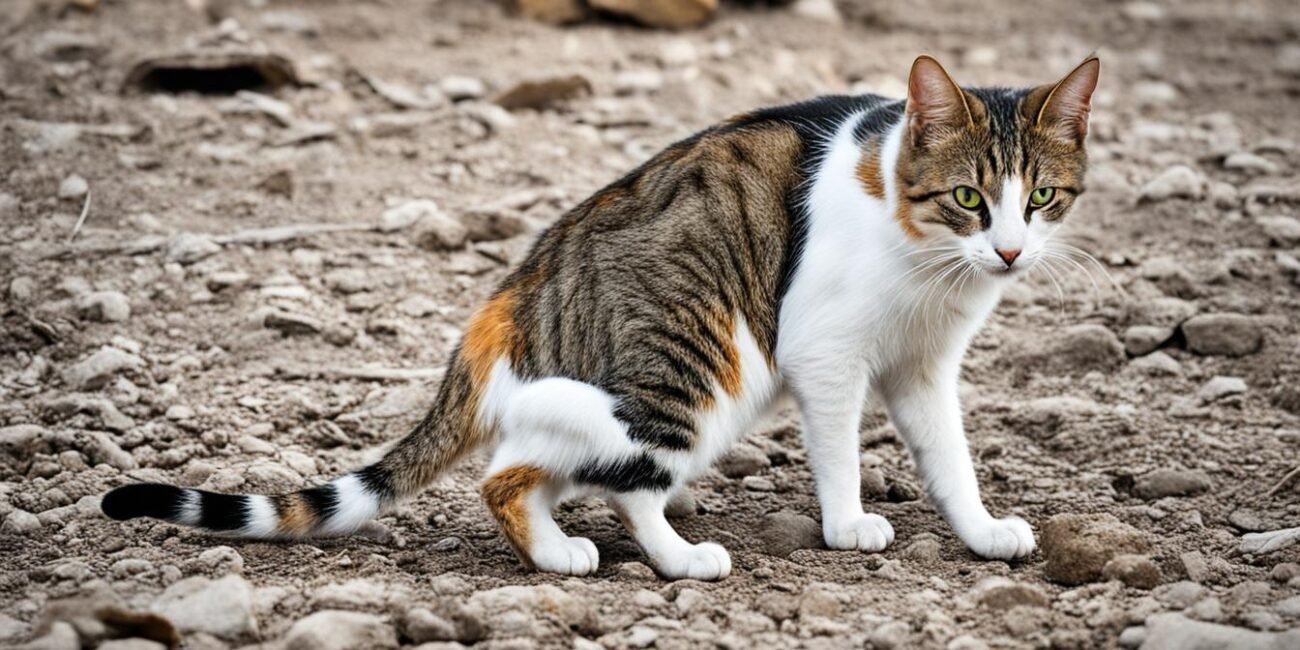


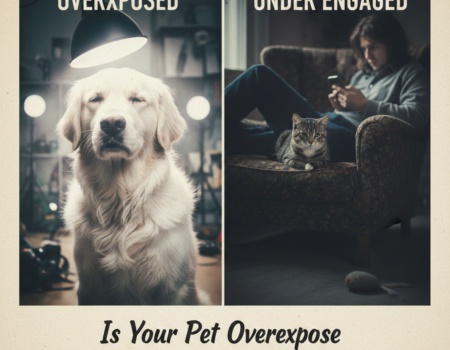
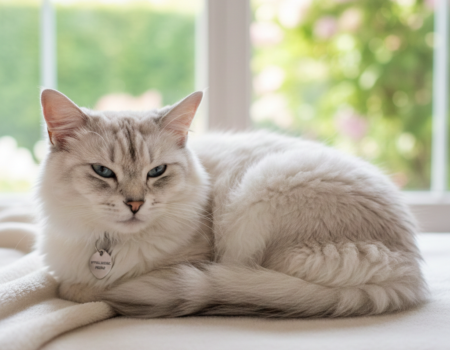
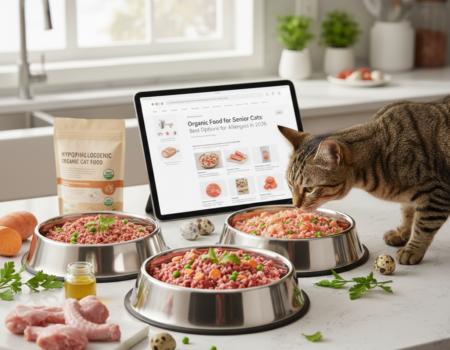
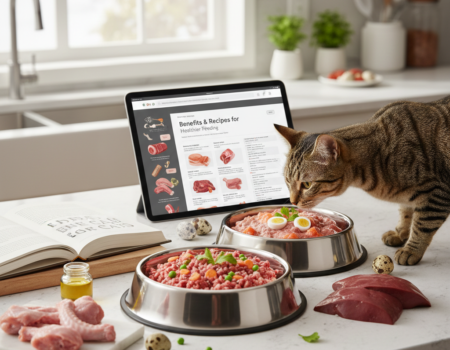
No Comment! Be the first one.